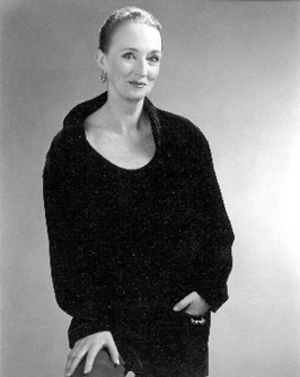Russian poets who defied Stalinist repression to be honored
Politicians never know what to do with poets—and dictators certainly don’t, except to exile them, jail them, ban them, stifle them, starve them or kill them.
Anna Akhmatova (1889-1966) was too hot, too famous, for Stalin to kill, but he did his best throughout most of his reign, and hers, to suppress her works, imprison or slaughter those closest to her and freeze Akhmatova herself into a non-person.
The poems nevertheless survived, and kept changing, growing, in her head, on her tongue, on the tongues of admirers, in underground sheets (samizdats) and occasional foreign publications. Akhmatova herself survived, partly as a translator.
“That’s what I found interesting,” said Kathleen Chalfant last week. “She translated all sorts of stuff, Korean, Armenian, everything.”
And French, of course—Victor Hugo. Educated Russians of that day were more French than the French.
Next Wednesday evening, January 19, the brilliant star of “Wit,” “Angels in America,” “Guantánamo” and much else will be speaking some of the poems of Anna Akhmatova and of Akhmatova’s countryman Alexander Blok (1880-1921)—another indigestible culture bump for Socialist Realist dialecticians—in a New York Festival of Song program of “Poets Without Heroes” at Merkin Concert Hall on West 67th Street.
It will have followed a similar NYFOS evening at the Kennedy Center in Washington, D.C., this coming Sunday, January 16.
“On my birthday! – I’ll be 60,” said the lean, blue-eyed, ever-more beautiful wife, mother, actress and Greenwich Villager.
The event, devised by NYFOS co-founding artistic directors Steven Blier and Michael Barrett, and subject to change even as you read this, has soprano Dina Kuznetsova, baritone Nicolai Janitsky, violinist Juliette Kang, cellist Thomas Kraines, pianist Blier and Chalfant teaming up on Prokofiev’s “Five Poems by Anna Akhmatova” and Shostakovich’s “Seven Songs on Poems by Alexander Blok,” among other pieces.
“I keep running into Akhmatova,” said the actress as she concocted a couple of early-morning cappuccinos in the kitchen of a sunlit top-floor walkup apartment near Sheridan Square. “Our paths keep crossing. The first time was, I don’t know, back in the early ’80s, in ‘Three Poets,’ an evening of three one-act plays by Romulus Linney. One was about Anna Akhmatova, and I played her.
“It was about the writing of her [anti-Stalinist] ‘Requiem,’ the quintessential samizdat poem. She didn’t even write it down. She told fragments of it to friends. Then when Stalin put her son in prison, she stood outside the prison and recited it. The Romulus play had a fictional meeting between Akhmatova and a commissar who was offering her her son’s freedom if she stopped writing.”
From 1921 to 1952, Akhmatova was published nowhere in the Soviet Union except for a short reprieve for obvious reasons at the start of World War II.
“Akhmatova was a member of the Acmeist school of poets, which only had about four people in it,” Chalfant explained. “It was a response to Symbolism. Akhmatova’s friend Blok was a Symbolist [and vehemently attacked as such, and as counter-revolutionary, by, among others, Leon Trotsky]. Symbolism was kind of obscure. Akhmatova was not in any way obscure.”
Nor is Chalfant.
“Two seasons ago, I was asked by Steven [Blier] if I would like to make my Carnegie Hall debut. Carnegie Hall! I said yes. It was a wonderful program of Shakespeare sonnets. Then Steven said: ‘I’d like to do this again. What do you think of Anna Akhmatova?’ So I told him.”
No, she won’t be singing in this evening of “Poets Without Heroes,” though Chalfant can sing.
“I have to sing [in plays] all the time, but I don’t sing very well. The first time was in ‘Sister Mary Ignatius Explains It All For You,’ when I had to sing the ‘Ave, Maria’ as an understudy for Elizabeth Franz. I did that on Sundays and in between famous people. Carolyn Mignini, in that show, came to me and said: ‘Kathy, it’s most amazing. You sing a half-tone flat all the way through.’”
There is nothing flat in Chalfant’s Akhmatova.
gaycitynews.com


































